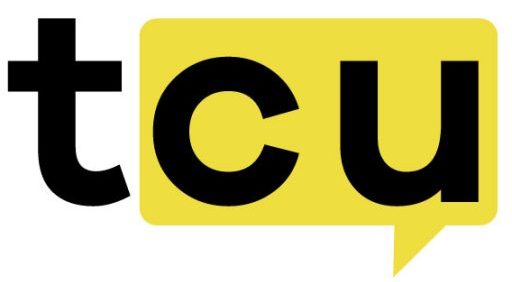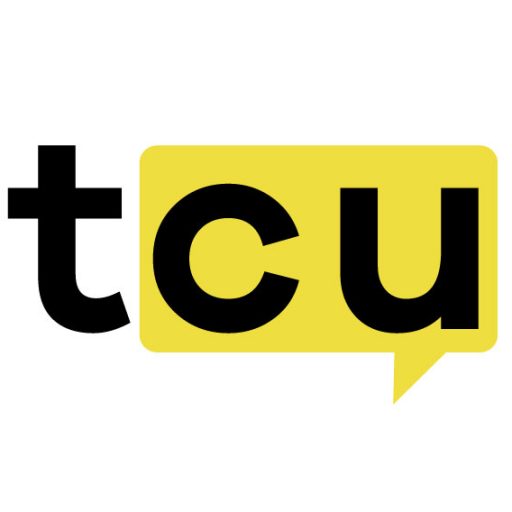What Are Blockchain Oracles?
Key Characteristics of Oracles:
- Data Sources: Oracles pull data from a variety of external sources, such as APIs, web services, or Internet of Things (IoT) devices.
- Trust Layer: Oracles must be trusted to provide accurate and tamper-proof data, as smart contracts will execute based on the information they receive from oracles.
- Bridge Between Worlds: Oracles act as intermediaries between decentralized systems (blockchains) and external, often centralized, data sources.
How Do Oracles Work?
- Smart Contract Request: A smart contract requires specific data to execute its function. For example, a decentralized insurance contract may need to know the current weather conditions to determine if a payout is required.
- Oracle Fetches Data: The oracle queries external data sources to obtain the necessary information. This could include pulling weather data from an API, fetching the price of a stock from a financial database, or checking the outcome of a sports event.
- Verification and Validation: To ensure the accuracy and reliability of the data, oracles may use multiple sources and aggregate the information. In some cases, multiple oracles are used to prevent manipulation or errors.
- Data Transmission: Once the data is fetched and verified, the oracle transmits it to the blockchain, where it is input into the smart contract.
- Smart Contract Execution: The smart contract uses the provided data to execute its predefined logic. In the case of a weather-based insurance contract, the smart contract may trigger an automatic payout if the weather data indicates that a certain event, such as a flood or storm, occurred.
Types of Blockchain Oracles
1. Inbound Oracles
Inbound oracles provide real-world data to smart contracts from external sources. They bring off-chain data into the blockchain, enabling smart contracts to react to external events. Example: An inbound oracle might pull stock prices from financial markets and provide that information to a smart contract responsible for executing a decentralized trading strategy.2. Outbound Oracles
Outbound oracles send data from the blockchain to the external world. These oracles allow smart contracts to trigger actions in the real world, such as sending a payment, activating a device, or notifying a system. Example: A smart contract for a decentralized lottery could use an outbound oracle to send the winnings to the bank account of the winner in the real world.3. Software Oracles
Software oracles interact with online data sources such as APIs, web services, or databases. These oracles fetch data from digital sources like stock prices, weather reports, or market prices. Example: A decentralized finance (DeFi) platform might use a software oracle to retrieve real-time cryptocurrency prices from multiple exchanges to determine the fair value of assets for lending and borrowing.4. Hardware Oracles
Hardware oracles fetch data from physical devices or systems, such as IoT sensors, RFID devices, or GPS trackers. These oracles are often used in supply chain management or insurance to verify real-world conditions. Example: An IoT-enabled hardware oracle could provide temperature data from a shipping container to a blockchain-based supply chain smart contract to ensure that goods were transported under the correct conditions.5. Consensus-Based Oracles
In cases where accuracy is critical, consensus-based oracles aggregate data from multiple sources and oracles to arrive at a reliable data point. This helps mitigate the risk of errors or manipulation. Example: In decentralized prediction markets, consensus-based oracles aggregate data from multiple sources to determine the outcome of events, such as election results or sports games.The Importance of Oracles in Blockchain
Oracles play a crucial role in bridging the gap between on-chain and off-chain systems, enabling blockchain technology to interact with real-world data and events. Without oracles, smart contracts would be limited to purely on-chain data, severely restricting their functionality and use cases. Here’s why oracles are essential to blockchain ecosystems:1. Expanding Smart Contract Functionality
Oracles allow smart contracts to go beyond simple, static conditions. They enable smart contracts to react to dynamic real-world events, such as market fluctuations, weather conditions, or IoT sensor data. This dramatically expands the use cases for smart contracts, making them applicable to industries like insurance, finance, logistics, and more.2. Enabling Decentralized Finance (DeFi)
Oracles are critical to the success of the DeFi ecosystem. Many DeFi protocols, such as lending platforms and decentralized exchanges, rely on accurate price feeds from oracles to determine asset valuations, interest rates, and collateral requirements. For instance, Chainlink, a leading decentralized oracle network, provides price feeds to numerous DeFi platforms to ensure that they have reliable, tamper-resistant data. Without oracles, the DeFi space would struggle to function effectively.3. Automating Business Processes
By integrating real-world data through oracles, businesses can automate processes that would otherwise require manual intervention. For example, insurance contracts can automatically trigger payouts when certain weather conditions are met, supply chains can track goods in real-time, and financial systems can settle payments based on external events.Use Cases of Blockchain Oracles
1. Decentralized Finance (DeFi)
Oracles are essential for providing real-time price data and interest rates in DeFi protocols. DeFi applications, such as lending platforms and decentralized exchanges, depend on accurate asset valuations from oracles to ensure the correct functioning of their smart contracts. Example: Lending protocols like Aave and Compound use oracles to determine the value of collateralized assets, helping users borrow against their holdings or earn interest by lending them.2. Insurance
Blockchain-based insurance can use oracles to automate claims processing. Oracles pull external data, such as weather conditions or flight delays, to verify claims and trigger payouts without human intervention. Example: A parametric insurance smart contract could automatically issue payouts to farmers if a weather oracle reports that drought conditions occurred within a specific time frame.3. Supply Chain Management
Oracles can track products in real-time using IoT sensors, RFID chips, and GPS data. This helps companies manage supply chains efficiently, ensuring transparency, product authenticity, and timely deliveries. Example: In food supply chains, hardware oracles can verify the temperature and humidity conditions during transportation to ensure that perishable goods remain in optimal condition.4. Prediction Markets
Prediction markets allow users to bet on the outcome of real-world events, such as elections, sports matches, or financial market trends. Oracles provide the verified data needed to determine the correct outcome of these events. Example: A blockchain-based prediction market might use an oracle to confirm the result of a presidential election and automatically pay out winnings to those who correctly predicted the outcome.Challenges and Risks of Oracles
While oracles are essential to unlocking the full potential of smart contracts, they also introduce certain challenges and risks.1. Trust and Security
Oracles are third-party entities, and their reliability is critical to the success of the smart contracts they serve. A malicious or compromised oracle can feed false data to the blockchain, leading to incorrect contract execution. This is known as the oracle problem, where trust in the oracle can compromise the decentralization of a blockchain.2. Single Point of Failure
If a blockchain relies on a single centralized oracle, that oracle becomes a single point of failure. If the oracle fails, gets hacked, or provides incorrect data, it could disrupt the entire network and lead to financial losses, incorrect contract execution, or exploitation of the system. To mitigate this risk, many blockchain platforms use decentralized oracles, which aggregate data from multiple sources to ensure the accuracy and reliability of the information provided to the smart contracts.3. Data Availability
Oracles depend on external data sources, and the accuracy of a smart contract’s execution is only as reliable as the source data. If the data is delayed, inaccurate, or unavailable, the performance of the smart contract may be compromised. Ensuring consistent and reliable access to high-quality data is a significant challenge for oracle providers.4. Regulatory and Legal Challenges
As oracles are increasingly integrated into real-world financial systems and services, they may face regulatory scrutiny. Oracles that deal with sensitive data, such as personal information or financial transactions, may need to comply with various regulatory frameworks, such as data privacy laws or anti-money laundering (AML) regulations. This can add complexity to their implementation and may limit the scope of certain oracle applications.Decentralized Oracles: Solving the Oracle Problem
The oracle problem—the issue of trusting external data sources in a decentralized system—is a fundamental challenge for blockchain networks. To address this, decentralized oracles have emerged as a solution, ensuring that no single entity can manipulate the data provided to smart contracts.How Decentralized Oracles Work
Decentralized oracles aggregate data from multiple sources, ensuring that the information provided to the blockchain is reliable and accurate. By decentralizing the data-fetching process, they reduce the risk of manipulation, fraud, and errors. These oracles use various consensus mechanisms to verify the accuracy of the data before it is sent to the blockchain.Key Examples of Decentralized Oracles
1. Chainlink
Chainlink is one of the most widely used decentralized oracle networks, providing tamper-proof data feeds for smart contracts on multiple blockchains, including Ethereum and Binance Smart Chain. Chainlink aggregates data from multiple sources and rewards nodes for providing accurate data, ensuring a decentralized and trustworthy solution. Chainlink also introduced Chainlink VRF (Verifiable Random Function), which provides cryptographically secure random numbers for blockchain applications like gaming and lotteries, enhancing fairness and transparency.2. Band Protocol
Band Protocol is another decentralized oracle platform that focuses on cross-chain compatibility and scalability. It allows developers to request data from multiple APIs and aggregate it to ensure accuracy before delivering it to smart contracts. Band Protocol operates across different blockchains, including Ethereum, Binance Smart Chain, and others, making it a flexible solution for various decentralized applications.3. API3
API3 offers a decentralized oracle solution that allows data providers to offer their services directly to blockchain applications, bypassing third-party intermediaries. API3 introduces the concept of dAPIs (decentralized APIs), where data providers themselves run their own oracles, ensuring the data is accurate and comes directly from the source.The Future of Oracles in Blockchain
1. Improved Security
Decentralized oracles will continue to evolve, with greater focus on ensuring the security and integrity of the data they provide. Multi-layer verification systems, stronger encryption, and decentralized governance of oracle networks will help mitigate the risks of data manipulation.2. Cross-Chain Compatibility
As blockchain ecosystems become more interconnected, oracles will need to support cross-chain data transfer. This means enabling smart contracts on one blockchain to access data from another blockchain seamlessly, further enhancing the scope of decentralized applications.3. Oracle Governance
The development of decentralized governance models for oracle networks is likely to gain traction. Allowing users and stakeholders to participate in the governance of oracles will ensure greater transparency and trust, making oracles more resilient against corruption and errors.4. Integration with IoT and AI
The integration of IoT (Internet of Things) devices and artificial intelligence (AI) with oracles will create new possibilities for blockchain applications. Oracles can pull data from IoT sensors to track real-time conditions, such as temperature, location, or performance metrics, which can trigger smart contracts for automated supply chains, autonomous vehicles, or predictive maintenance.Conclusion
Oracles are a fundamental component of the blockchain ecosystem, enabling smart contracts to interact with the real world. By bridging the gap between on-chain and off-chain data, oracles unlock the full potential of decentralized applications, particularly in sectors like finance, insurance, supply chain management, and prediction markets. While oracles offer immense potential, they also introduce challenges related to trust, security, and reliability. Decentralized oracles, such as Chainlink, Band Protocol, and API3, are working to solve these issues by providing more secure and transparent methods for feeding data into smart contracts. As blockchain technology continues to mature, the role of oracles will only grow in importance, allowing blockchain networks to interact seamlessly with real-world systems and further expanding the scope of decentralized applications. ![]()


